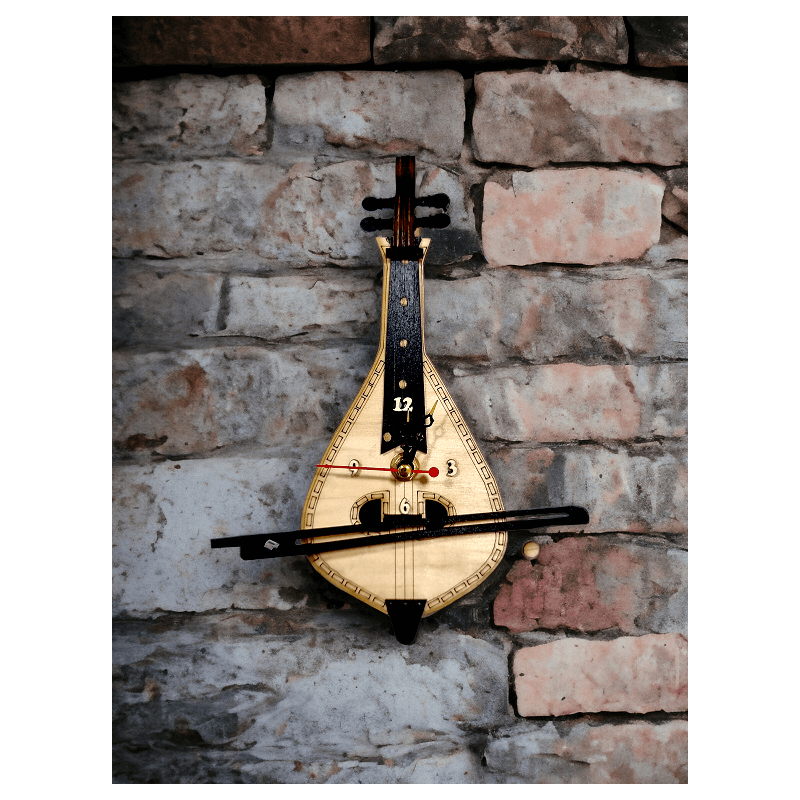



Lyre clock pendulum with bow movement.
Unique quality product that includes special packaging and instructions for use.
Also available with rewritable audio of a maximum duration of 2 minutes.
 Security Policy
Security PolicyAll your data is used exclusively by Kappa N.F.A.
 Delivery policy
Delivery policyAll our products are delivered in safe packaging with a transport company upon request
 Return Policy
Return PolicyThe return policy concerns products that showed a defect / damage in transport
Lyra pendulum clock
A pendulum clock is a clock that uses a pendulum, an oscillating weight, as its measuring element. The advantage of a pendulum for measuring time is that it is a harmonic oscillator : It moves back and forth in a precise amount of time that depends on its length and resists levitation at other rates. From its invention in 1656 by Christiaan Huygens, inspired by Galileo Galilei, until the 1930s, the pendulum clock was the most accurate timekeeper in the world. due to its widespread use. During the 18th and 19th centuries, pendulum clocks in homes, factories, offices, and train stations served as prime time patterns for planning daily life, work shifts, and public transportation. Their greater accuracy allowed for the faster pace of life necessary for the Industrial Revolution. The household pendulum clock was replaced by less expensive, modern, electric watches in the 1930s and 40s. Pendulum clocks are now preserved mainly for their decorative and antique value.
Pendulum clocks must be stationary to work. Any movement or accelerations will affect the movement of the pendulum, causing inaccuracies, thus requiring other mechanisms for use in portable watches.
The Lyra pendulum clock is a wooden chordophone (stringed musical instrument). It usually has three strings, in notes of Sol-Re-La and is played by rubbing a bow on its strings. It holds a central place in the traditional music of Crete and other Aegean islands and Dodecanese. It was first known in Byzantine Crete, with some further modifications noted in the 20th century to give the instrument a more powerful sound and projection. It is considered the most popular variant of the Byzantine lyre used today. The parts of a Cretan lyre are usually made of different types of wood. The strings are made of intestine or metal.
You might also like